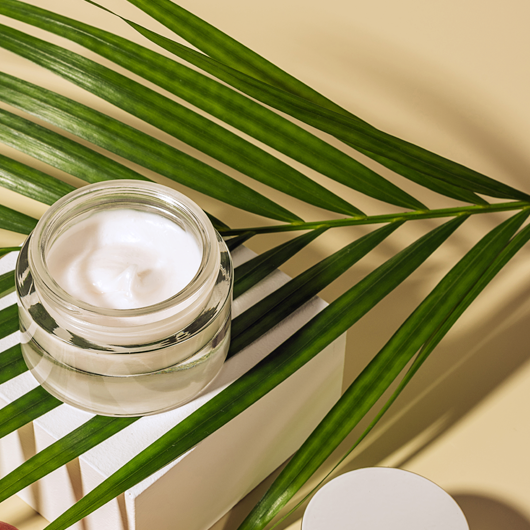Maintaining hydrated skin is essential for a healthy complexion and overall well-being. However, sometimes water alone is not enough to combat skin dehydration. Dehydrated skin lacks moisture. It can be a common issue for various skin types, including combination, acne-prone, and mature skin. In this article, we will look at the main types of skin that can become dehydrated and discuss various solutions to replenish moisture levels effectively.
What is the Difference Between Dry and Dehydrated Skin?
They are two entirely different conditions, although they may share some similar symptoms. Understanding the differences can help in choosing the appropriate skincare routine and treatments.
What is Dry Skin?
It is a skin type characterized by the inadequate production of natural oils (sebum). Inadequate products results in a lack of moisture and lipid barrier function. It is a genetic predisposition that affects the skin's ability to retain moisture. Dry skin can feel rough, flaky, or tight and is often prone to sensitivity and irritation. It can persist overtime and become a chronic condition.
What is Dehydrated Skin?
It is a condition that is temporary. It can affect any skin type, including oily or combination skin. Dehydration refers to the lack of water content in the skin, rather than a deficiency in oil production. It is caused by external factors like environmental conditions (such as dry climate or excessive heat), excessive sun exposure, harsh skincare products, or lifestyle choices (like inadequate water intake). Dehydrated skin may appear dull, feel tight or uncomfortable. It can also amplify fine lines or increase sensitivity.
Dry complexions are lacking in oil. Dehydrated complexions are lacking water. However, it's important to note that dehydrated skin can occur even in individuals with naturally oily skin. Also, dry skin can coexist with dehydrated skin. This means that a person may have both low oil production and inadequate water content in their skin.
Treatments for Dehydrated Complexions
Treatment approaches for dry and dehydrated skin differ slightly. Dry skin requires long-term management. Plus, the consistent use of hydrating and moisturizing products that replenish natural oils and support the skin's barrier function. Dehydrated skin, on the other hand, can often be resolved by restoring water content through hydrating skincare products, increasing water intake, and avoiding dehydrating factors.
In both cases, it is crucial to choose gentle, non-irritating skincare products, avoid excessive cleansing, and protect the skin from harsh environmental conditions.
Consulting with an esthetician, dermatologist, or skincare professional can provide personalized recommendations and guidance for managing dry or dehydrated skin effectively.
Types of Skin That Can Be Dehydrated

- Combination Skin - Combination skin is characterized by having both dry and oily areas on the face. While it may seem contradictory, combination skin can still experience dehydration. The dry areas lack sufficient moisture, leading to a tight and uncomfortable feeling, while the oily areas may produce excess sebum to compensate for the lack of hydration.
- Acne-Prone Skin - Acne-prone skin is often associated with excess oil production and the formation of blemishes. However, dehydration can exacerbate acne issues. When the skin lacks moisture, it can trigger the overproduction of sebum, leading to clogged pores and increased breakouts.
- Mature Skin - As we age, our skin's natural ability to retain moisture decreases. Mature skin is more prone to dehydration due to the gradual decline in sebum production and the breakdown of the skin's protective barrier. This can result in dry, flaky, and dull-looking skin, accentuating the appearance of fine lines and wrinkles.
Solutions for Dehydrated Skin
- Water: While water alone may not be enough to fully hydrate the skin, staying adequately hydrated internally is crucial. Drinking an adequate amount of water each day (approximately 8 glasses) can help support overall skin health and improve moisture levels from within.
- Electrolytes: Dehydrated skin often lacks essential electrolytes, which are minerals that help maintain the skin's hydration balance. Consuming electrolyte-rich foods and drinks or using skincare products containing electrolytes can help replenish these vital minerals and promote optimal hydration.
- Lipids: Lipids play a crucial role in preventing water loss. When the skin's maintaining the skin's barrier function and preventing water loss. Look for skincare products that contain lipids, such as ceramides, cholesterol, and fatty acids. These ingredients replenish the skin's natural lipid barrier and enhance moisture retention.
- Skincare products that replenish the skin's barrier moisture levels. Hydrators, beauty oils, moisturizers, creams and lotions help lock in moisture and prevent dryness.
Skincare Products to Use on Dehydrated Skin
- Hydrators: Hydrators, such as hyaluronic acid (HA), are water-binding substances that attract and retain moisture in the skin. Incorporating a hydrating serum or gel containing HA into your skincare routine can help replenish dehydrated skin and restore a plump and supple appearance.
- Beauty Oils: Beauty oils, such as argan oil, jojoba oil, or rosehip oil, can provide an extra layer of hydration and nourishment for dehydrated skin. These oils help to seal in moisture and improve the skin's overall texture, leaving it soft and smooth.
- Moisturizers: Choosing the right moisturizer is vital for dehydrated skin. Opt for a moisturizer that contains ingredients like glycerin, shea butter, or ceramides. These ingredients help to lock in moisture and provide long-lasting hydration throughout the day.
- Creams and Lotions: Creams and lotions are thicker formulations that are particularly beneficial for dehydrated skin. They provide a more intense and occlusive barrier, preventing water loss and improving the skin's moisture levels. Look for products labeled as "hydrating" or "moisturizing" for optimal results.
- Ceramides: They are natural lipids found in the skin's outermost layer, helping to maintain moisture balance and protect against external aggressors.








